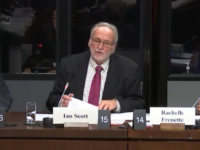CRTC Chair Ian Scott returned to the Standing Senate Committee on Transport and Communications last night, presumably hoping that his fourth House and Senate committee appearance involving Bill C-11 might allow him to say what the government clearly would like, namely that the bill will not lead to the regulation of user content. Yet Scott has failed each time, because the bill plainly does contain that power. In this instance, Scott embarrassed himself, the CRTC, and the entire legislative process as he demonstrably failed to defend the independence of the CRTC and zig-zagged between actively promoting the bill, claiming that was not his role, and even bizarrely offering to draft potential amendments.
Archive for November 17th, 2022

Law Bytes
Episode 257: Lisa Given on What Canada Can Learn From Australia’s Youth Social Media Ban
byMichael Geist

February 9, 2026
Michael Geist
Episode 256: Jennifer Quaid on Taking On Big Tech With the Competition Act's Private Right of Access
February 2, 2026
Michael Geist
The Law Bytes Podcast, Episode 255: Grappling with Grok – Heidi Tworek on the Limits of Canadian Law
January 26, 2026
Michael Geist
December 22, 2025
Michael Geist
December 8, 2025
Michael Geist
Search Results placeholder
Recent Posts
 The Law Bytes Podcast, Episode 257: Lisa Given on What Canada Can Learn From Australia’s Youth Social Media Ban
The Law Bytes Podcast, Episode 257: Lisa Given on What Canada Can Learn From Australia’s Youth Social Media Ban  Court Ordered Social Media Site Blocking Coming to Canada?: Trojan Horse Online Harms Bill Clears Senate Committee Review
Court Ordered Social Media Site Blocking Coming to Canada?: Trojan Horse Online Harms Bill Clears Senate Committee Review  An Illusion of Consensus: What the Government Isn’t Saying About the Results of its AI Consultation
An Illusion of Consensus: What the Government Isn’t Saying About the Results of its AI Consultation  The Law Bytes Podcast, Episode 256: Jennifer Quaid on Taking On Big Tech With the Competition Act’s Private Right of Access
The Law Bytes Podcast, Episode 256: Jennifer Quaid on Taking On Big Tech With the Competition Act’s Private Right of Access  Government Says There Are No Plans for National Digital ID To Access Services
Government Says There Are No Plans for National Digital ID To Access Services

